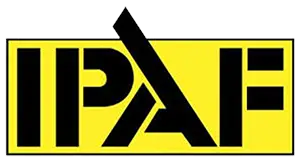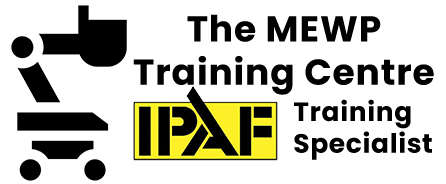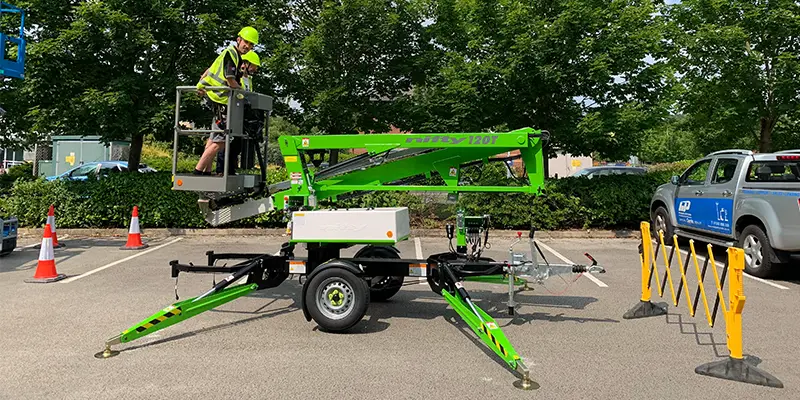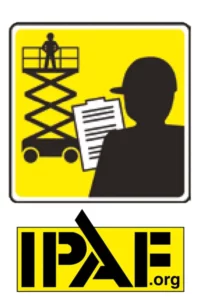MEWPS for Managers
MEWPs for Managers is the essential course for those who plan, supervise and manage the use of Mobile Elevating Work Platforms (MEWPs) in the workplace. Available as either eLearning or a full-day course.
Certificate on completion.

- Course length: One day
- eLearning available
- Certificate on completion
Duration
1 day (Minimum 7 hours)
Maximum number of candidates = 10
Course entry criteria
The course is targeted at project managers and supervisors working in a broad range of industries such as construction, facilities management, retail, airports and arboriculture.
Aim
To instruct a supervisor/manager in the requirements to select, use and manage various types of Mobile Elevating Work Platforms (MEWPs) under their control.
Course Objectives
At the end of the course the candidate will:
• Be aware of current legislation, standards and guidance
• Be aware of different MEWP classifications.
• Plan for ongoing operator development through appropriate training.
• Be aware of the importance of correct machine selection.
• Be able to select the correct protective equipment for the operator.
• Have a greater knowledge and awareness of the safe use and operation of MEWPs.
• Be able to identify misuse and abuse of MEWPs.
• Be aware of planning and maintenance considerations.
Theory
What the candidate will learn:
• The requirements for a safe-use programme specific to MEWPs that includes site risk assessments, access, site preparation and maintenance, pre-use and workplace inspections, along with training and familiarisation requirements.
• The regulations and standards relevant to MEWP usage.
• The correct procedures (including emergency), capacities and limitations to enable safe operation.
• Correct selection, provision and use of suitable MEWPs for the task being performed.
• Correct selection and use of fall protection equipment.
A certificate will be issued to all successful candidates and not a PAL Card. IF the candidate is in possession of an active IPAF Operator or Demonstrator or Instructor licence, their card may be updated to include MM training.
MEWPs for Managers (MM) eLearning Course:
IPAF’s MM eLearning theory module is a complete training course. The eLearning course delivers flexibility and interactive tools, with emphasis on contextualised on-line training.
If completed successfully the candidate will
receive an IPAF MEWPs for Managers certificate which evidences that the holder has successfully completed the training and enables them to plan,
supervise and manage MEWP operations safely.
Course Aim
- Introduction: Facilities and Housekeeping, IPAF Health & Fitness Statement, Course Objectives, Course Outline, International Powered Access Federation, Basic MEWP selection exercise.
- MEWP regulations, standards and
guidance: Plan, do, check, act. Legal compliance, regulations, standards, sentencing guidelines, industry best practice, guidance. - Machine types and use: Categorising MEWPs, Tipping lines and load centres, MEWP identification; 1a/1b/3a/3b//PAV/MCWP/Special.
- Structural parts and MEWP selection: Safe design of MEWPs; Emergency stop/isolation, secondary guarding, function enable, load sensors, tilt sensors. creating a MEWP for the environment and task, MEWP gradeability vs gradient, contextualised machine selection exercises.
- Hire terms and conditions: Determining charges from breaches of different hire terms and conditions, lack of training, maintenance and repair, MEWP security, common issues to be avoided.
- Operator training and familiarisation: PAL Cards, IPAF Operator training; PAL+; MCWP, Demonstrator, Harness, MEWPs for Managers, Load/Unload. Further training Familiarisation, (IPAF Technical Guidance – Familiarisation (F1)); Interactive auxiliary lowering video demonstrations, rescue, permits.
- MEWP personal fall protection: Hierarchy of falls, Harness statement, restraint vs. fall arrest and harness use, (IPAF Technical Guidance – Fall Protection in Mobile Elevating Work Platforms (H1)), Fall protection quiz
- Operator pre-use inspection and rescue planning: Pre-use Inspections, controls & safety features, pre-operation, defects, rescue planning, human factors, briefings, tool box talks.
- Planning exercise for two tasks on a fictional site: Controlling hazards, protective equipment selection, MEWP selection, hazardous substances, selection of competent personnel, loading and unloading, parking and securing; and re-fuelling, safe system of work completion, recognising bad practice.
- The importance of planning: Accident repercussions, accident statistics, accident type trends, key factors to prevent falls, common planning failures.
- Theory test: Individual written multiple-choice test with explanation of pass requirements. Failure means the applicant will have to re-sit the course on another day.


